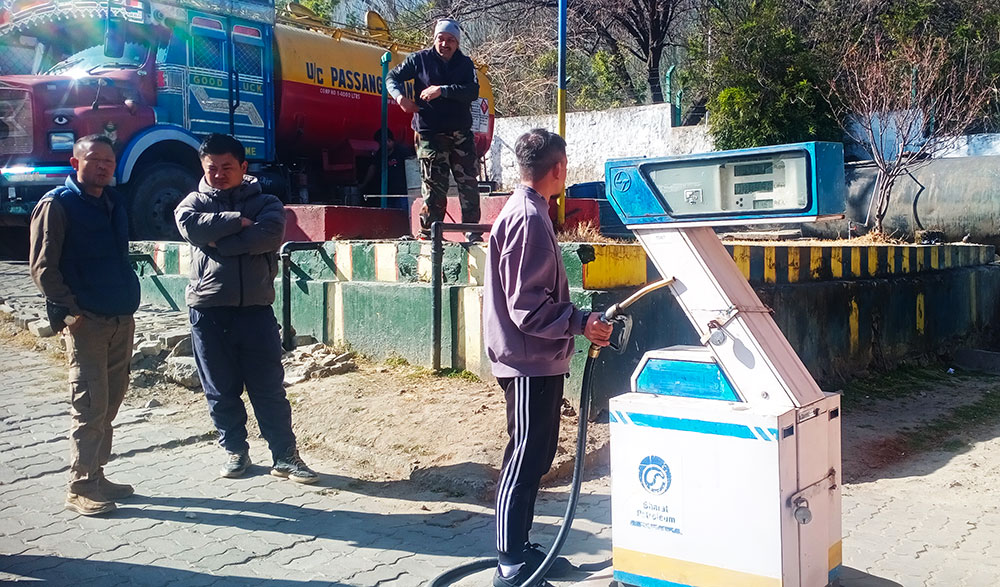Thinley Namgay
The price of kerosene, a much sought-after commodity especially in winter for the use of heaters, has been escalating in recent years leaving many households frustrated.
Last month, the price stood at Nu 73.02 more than the cost of petrol.
It dropped by Nu 1.52 nationwide this month. However, users say that the overall trend in the past few years has shown a surge in its price.
Sonam Pem, a restaurant owner in Thimphu, expressed concerns about the soaring kerosene prices, stating that most citizens won’t be able to afford it. “It is challenging to sustain in the capital.”
During the winter season, she uses a minimum of 100 litres of kerosene per month, costing more than Nu 7,000. She emphasised the challenges faced by businesses, especially those dependent on restaurants.
“In 2018, it cost Nu 40 per litre,” she said, adding that a kerosene heater makes homes warmer in winter compared to electric ones.
Comparing the rates of the past few years, prices have increased from Nu 40 per litre in 2020 to Nu 54 in 2021, reaching close to Nu 100 in 2022, and fluctuating between Nu 70-80 in 2023.
For highlanders, kerosene is crucial as some high-altitude areas lack electricity. Lingzhi Gup Wangdi stated that highlanders have no alternative, whether the price is high or low, and have been enduring the challenges of both high costs and harsh environments.
At the Bhutan Oil Distributor (BOD) in Motithang, Thimphu, the sale of kerosene has dropped. Manager Melam Rinzin attributes this to high prices and increased electricity coverage across the country.
In January, Motithang BOD sold only 2,000 litres of kerosene, averaging around 67 litres a day.
BOD fuel depot employees in the capital said that one reason for the surging prices is the cost fluctuations in India. “Bhutan no longer receives kerosene at a subsidised rate as it did in the past.”
Melam Rinzin said that customers should carry coupons to purchase kerosene from the BOD in the past. However, the government recently revised this decision, allowing the purchase of 50 litres of kerosene without a token.
Despite the revision, he believes it is unlikely that many would prefer kerosene for daily purposes.
Dorji from Udzorong, Trashigang, said that despite it being convenient he cannot use kerosene, mainly because of the high price. “The challenges in obtaining it on time complicates the situation.”
“Residents of Udzorong have to purchase kerosene from Trashigang town, incurring additional expenses,” he said.


